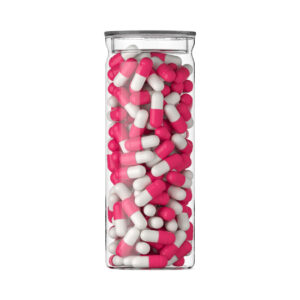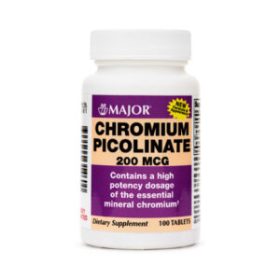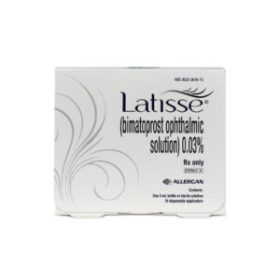Biotin / Minoxidil / Spironolactone Capsule (Each)
Biotin
Five carboxylases, which catalyze processes in fatty acid, glucose, and amino acid metabolism, depend on biotin as an important cofactor. It is furthermore a key element in cell signaling, gene regulation, and histone modifications. To fill stores, mammals have to eat biotin.
Minoxidil
While topical minoxidil (Rogaine) is applied for alopecia, oral minoxidil (Loniten) is an anti-hypertensive drug. Topical minoxidil probably works for about 30% of males and 60% of women with frequent inherited hair loss to produce mild hair development. Frequent results are also slower growth or a stop in the deterioration of alopecia. Because of its strength and negative effects, oral minoxidil is primarily prescribed for those with extreme, drug-resistant forms of hypertension. Minoxidil was first found in 1965, but its oral dosage form was first approved in October 1979 to treat hypertension. The topical medicine for alopecia was granted approval in August 1988. The 2% topical solution was finally authorized for over-the-counter use after Upjohn refused permission to sell topical minoxidil as a nonprescription medicine in July 1994. February 1996 in men with alopecia.
Spi-ron-o-lactone
A potassium-sparing diuretic is spironolactone. Spironolactone has been proven to increase general survival and NYHA functional capacity in patients with NYHA Class IV, or severe heart failure. class, and to lower hospitalizations when combined with standard treatment (e.g., ACE inhibitor, loop diuretic, digoxin). It is often used to treat ascites connected to cirrhosis has also been employed as a diagnostic tool for primary hyperaldosteronism. It is also used to treat hypokalemia. It is a relatively weak agent for controlling hypertension or general oedema when compared to thiazide or loop diuretics. Though its actions can be additive with thiazide diuretics.
Biotin, Minoxidil, and Spironolactone: How They Work in the Body
Biotin
Biotin, also known as vitamin B7, is a water-soluble vitamin that’s essential for our health. It helps the body turn the food we eat—like carbohydrates, fats, and proteins—into energy. You can find biotin naturally in foods such as liver, eggs, nuts, and soybeans. Once you eat these foods, enzymes in the digestive system break down the biotin, helping it get absorbed in the small intestine. Biotin plays an important role in various metabolic processes, including fat and amino acid metabolism. It’s also used to help treat rare enzyme deficiencies that affect how the body uses energy from food.
Minoxidil
Minoxidil is a medication that helps relax blood vessels, making it easier for blood to flow and lowering blood pressure. It works directly on the smooth muscles around arteries and doesn’t affect the nervous system. This is why minoxidil is often paired with other medications like beta-blockers or diuretics to control these side effects. Though scientists aren’t exactly sure how it works, it’s believed that minoxidil shortens the resting phase of hair growth, allowing hair to regrow more quickly. It seems to help weaker hair follicles rather than creating new ones.
Spironolactone
Spironolactone is a diuretic that helps the body get rid of excess water and salt, but only when the hormone aldosterone is present. It works by blocking aldosterone, which normally causes the body to retain salt and water. This helps reduce swelling and lower blood pressure slightly. Spironolactone also affects hormone activity—it blocks androgen receptors, which can reduce oil production in the skin and help with conditions like acne or hair thinning. While it’s not the strongest blood pressure medicine, it offers benefits in hormone-related issues. It doesn’t block kidney functions but instead targets specific hormonal pathways to help balance fluid levels and reduce unwanted symptoms.
Biotin
Many people take it in higher doses—sometimes up to 300 mg per day. However, taking large amounts of biotin can interfere with certain lab tests that use a specific technology called biotin-streptavidin. This interference may lead to false test results, such as abnormally low troponin levels, which doctors use to diagnose heart attacks. In rare cases, this has led to missed diagnoses and serious outcomes. If you’re taking biotin supplements, it’s important to tell your doctor and lab before getting tested. During pregnancy and breastfeeding, biotin is safe when taken in recommended amounts, and extra supplementation is usually unnecessary if you eat a balanced diet.
Minoxidil
It relaxes blood vessels to lower blood pressure, but it can also cause side effects like a rapid heartbeat or fluid retention. People with heart problems, kidney disease, or certain other conditions should be cautious because minoxidil can worsen their health. For high blood pressure, it’s often combined with other medications like diuretics or beta-blockers to help reduce side effects. Topical minoxidil, which is used for hair regrowth, is less likely to cause serious issues, but overuse or skin damage may increase its absorption and side effects. Older adults should start at low doses, and anyone feeling dizzy or lightheaded should stop using it.
Spironolactone
Spironolactone is a diuretic that helps the body get rid of extra water and salt, but it’s not for everyone. It’s unsafe for people with high potassium levels, adrenal gland problems, or severe kidney disease. It can cause dangerous changes in potassium levels and worsen dehydration or kidney issues. It also affects hormones and may cause menstrual problems, breast enlargement, or fertility concerns. Pregnant women should avoid it because it might affect the development of a male fetus. Although spironolactone is considered generally safe during breastfeeding, it’s best to discuss risks and benefits with a doctor. For older adults, careful monitoring of kidney function and electrolytes is essential, and the medication should be used cautiously to prevent falls or confusion.
Biotin, Minoxidil, and Spironolactone – Potential Side Effects Explained
Biotin
Biotin is generally well-tolerated, even at higher doses, but rare complications can occur. For example, one elderly woman who took a combination of biotin and pantothenic acid for a couple of months developed a severe condition involving fluid buildup around the heart and lungs, which became life-threatening. Such cases are extremely uncommon, but they highlight the importance of using supplements responsibly, especially at high doses.
Minoxidil
Minoxidil is mostly safe when applied to the skin, with few side effects beyond mild irritation. However, when taken as a pill, it can have more serious effects. Because it widens blood vessels, it can cause the body to hold on to salt and water, sometimes leading to swelling or, in extreme cases, heart problems like congestive heart failure. Rapid fluid buildup can occur within days, particularly if a diuretic isn’t used alongside it. Headaches and a fast heartbeat are also common, and people with heart or vascular conditions are at greater risk. To reduce these risks, doctors often recommend pairing minoxidil with other medications like beta-blockers or diuretics. Some patients also experience temporary changes in blood tests or increased hair growth in unwanted areas, which usually resolves after stopping the medication.
Spironolactone
Spironolactone is a powerful medication that helps the body remove excess water but carries some risks, particularly involving potassium levels. People with kidney issues or those taking other medications that affect potassium are especially vulnerable. It’s important to monitor blood tests frequently while on this medication. Spironolactone can also cause hormone-related side effects, like breast tenderness, menstrual changes, or decreased libido. Men may develop breast tissue or experience erectile problems, while women could face irregular cycles or voice changes. Though rare, severe reactions like allergic responses, liver issues, or life-threatening skin conditions have been reported. For these reasons, spironolactone should be used cautiously, with careful medical supervision, especially in older adults or those with preexisting health conditions.
Overall, while these medications can be beneficial when prescribed correctly, being aware of their potential side effects and communicating openly with healthcare providers helps ensure their safe and effective use.
Biotin, Minoxidil, and Spironolactone Use During Pregnancy and Breastfeeding
Biotin
During pregnancy, biotin can be safely consumed within the recommended daily intake if the mother follows a balanced diet and has no diagnosed deficiency. Additional supplementation is generally unnecessary. Similarly, breastfeeding mothers can take biotin at recommended levels without concern, provided they maintain a healthy diet. There’s no clear evidence suggesting harm to the baby, and supplementation beyond normal dietary amounts is rarely needed.
Minoxidil
Minoxidil is categorized as a pregnancy risk category C drug. While there are no thorough human studies, animal research indicates that it may impair fertility and reduce offspring survival. One reported case described facial abnormalities and excess hair growth in a baby whose mother took minoxidil daily during pregnancy. Because of these potential risks, minoxidil should be used cautiously in expectant mothers, with careful evaluation of its benefits versus possible harm.
When it comes to breastfeeding, manufacturers advise against its use. However, some experts believe it may be acceptable in certain cases. One case showed that small amounts of minoxidil passed into breast milk without harming the baby over two months, but long-term effects are uncertain. Safer alternatives, like enalapril or propranolol, may be considered depending on the mother’s condition. The impact of topical minoxidil on breast milk remains unclear.
Spironolactone
Spironolactone is generally avoided during pregnancy because it may disrupt male fetal development due to its anti-androgen effects. Animal studies have shown feminization of male fetuses and reproductive issues that continued into adulthood. Limited human data, however, have not confirmed major birth defects.
No long-term data exist, but occasional use appears compatible with breastfeeding when benefits outweigh risks. Monitoring and consultation with healthcare providers are essential in such cases.
Store this medication at 68°F to 77°F (20°C to 25°C) and away from heat, moisture and light. Keep all medicine out of the reach of children. Throw away any unused medicine after the beyond-use date. Do not flush unused medications or pour down a sink or drain.
- Office of Dietary Supplements. Biotin fact sheet for health professionals. September 2018. Internet version, retrieved June 24, 2019. Available on the World Wide Web at: https://ods.od.nih.gov/factsheets/Biotin-HealthProfessional/– LinkOpens in New Tab
- DeVillez RL. The Therapeutic Use of Topical Minoxidil. Dermatol Clin 1990;8:367-74.
- Olsen EA, Dunlap FE, Funicella T, et al. A randomized clinical trial of 5% topical minoxidil versus 2% topical minoxidil and placebo in the treatment of androgenetic alopecia in men. J Am Acad Dermatol 2002;47:377-85.
- Olsen EA, Whiting D, Bergfeld W, et al. A multicenter, randomized, placebo-controlled, double-blind clinical trial of a novel formulation of 5% minoxidil topical foam versus placebo in the treatment of androgenetic alopecia in men. J Am Acad Dermatol 2007;57(5):767-74. Epub 2007 Aug 29
- Pitt B, Zannad F, Remme WJ. The effect of spironolactone on morbidity and mortality in patients with severe heart failure. N Engl J Med 1999;341:709-717.
- Standing Committee on the Scientific Evaluation of Dietary Reference Intakes-Panel on Folate, Other B Vitamins, and Choline and the Subcommittee on Upper Reference Levels of Nutrients, Food and Nutrition Board, Institute of Medicine (IOM). Dietary Reference Intakes for Thiamine, Riboflavin, Niacin, Vitamin B6, Folate, Vitamin B12, Pantothenic Acid, Biotin and Choline. 1999, 2000. The National Academy of Sciences Press, Washington DC.
- Bauer JH, Alpert MA. Rapid reduction of severe hypertension with minoxidil. J Cardiovasc Pharmacol 1980;2 Suppl:S189-99.
- Alpert MA, Bauer JH. Rapid control of severe hypertension with minoxidil. Arch Intern Med 1982;142(12):2099-104.
- Pogatsa-Murray G, Varga L, Varga A, et al. Changes in left ventricular mass during treatment with minoxidil and cilazapril in hypertension patients with left ventricular hypertrophy. J Hum Hypertens 1997;11(3):149-56.
- Buhl AE. Minoxidil’s action in hair follicles. J Invest Dermatol 1991;96:73S-4S.
- Messenger AG, Rundegren J. Minoxidil: mechanisms of action on hair growth. Br J Dermatol 2004;150:186-194.
- Sato T, Tadokoro T, Sonoda T, et al. Minoxidil increases 17b-hydroxysteroid dehydrogenase and 5a-reductase activity of cultured human dermal papilla cells from balding scalp. J Derm Sci 1999;19:123-5.
- US Food and Drug Administration (FDA). FDA Safety Communication: Update: The FDA warns that biotin may interfere with lab tests.
- Elston MS, Sehgal S, Toit SD, et al. Factitious graves’ disease due to biotin immunoassay interference – a case and review of the literature. J Clin Endocrinol Metab 2016;101(9):3251-3255.
- Loniten (minoxidil) tablets package insert. Kalamazoo, MI: Pharmacia; 2006 Feb.
- Health Care Financing Administration. Interpretive Guidelines for Long-term Care Facilities. Title 42 CFR 483.25(l) F329: Unnecessary Drugs. Revised 2015.
- Aldactone (spironolactone) package insert. New York, NY: G.D. Searle LLC Division of Pfizer Inc.; 2020 Jun.
- Carospir (spironolactone) oral suspension package insert. Farmville, NC: CMP Pharma, Inc.;2021 Jun.
- Bornstein SR, Allolio B, Arlt W, et al. Diagnosis and treatment of primary adrenal insufficiency: an Endocrine Society clinical practice guideline. J Clin Endocrinol Metab. 2016;101:364-389.
- Esposito D, Pasquali D, Johannsson G. Primary adrenal insufficiency: managing mineralocorticoid replacement therapy. J Clin Endocrinol Metab. 2018;103:376-387.
- Inder WJ, Meyer C, Hunt PJ. Management of hypertension and heart failure in patients with Addison’s disease. Clin Endocrinol. 2015;82:789-792.
- Hunt SA, Abraham WT, Chin MH, et al. 2009 Focused Update Incorporated into the ACC/AHA 2005 Guidelines for the Diagnosis and Management of Heart Failure in Adults. Circulation 2009;119:e391-e479.
- Luthy IA, Begin DJ, Labrie F. Androgenic activity of synthetic progestins and spironolactone in androgen-sensitive mouse mammary carcinoma (Shionogi) cells in culture. J Steroid Biochem. 1988;31(5):845-852.
- Bedussi F, Galli D, Fragni M, et al. Amiloride is effective in the management of abiraterone-induced mineralocorticoid excess syndrome without interfering with its antineoplastic activity. Pharmacology. 2017;100:261-268.
- Richards J, Lim AC, Hay CW, et al. Interactions of abiraterone, eplerenone, and prednisolone with wild-type and mutant androgen receptor: a rationale for increasing abiraterone exposure or combining with MDV3100. Cancer Research. 2012;72(9):2176-2182.
- Barthelemy P, Erdmann E, Duclos B, et al. Spironolactone: a selective androgen receptor modulator in castration-resistant prostate cancer. J Clin Oncol. 2014;32(4 suppl):abstract 212.
- Sundar S and Dickinson PD. Spironolactone, a possible selective androgen receptor modulator, should be used with caution in patients with metastatic carcinoma of the prostate. BMJ Case Reports. 2012;doi:10.1136/bcr.11.2011.5238.
- Flynn T, Guancial EA, Kilari M, and Kilari D. Case report: spironolactone withdrawal associated with a dramatic response in a patient with metastatic castrate-resistant prostate cancer. Clinical Genitourinary Cancer. 2017;15(1):e95-e97.
- The American Geriatrics Society 2019 Beers Criteria Update Expert Panel. American Geriatrics Society 2019 updated AGS Beers Criteria for potentially inappropriate medication use in older adults. J Am Geriatr Soc 2019;00:1-21.
- American Academy of Pediatrics (AAP) Committee on Drugs. Transfer of drugs and other chemicals into human milk. Pediatrics 2001;108(3):776-789.
- Kaler SG, Patrinos ME, Lambert GH, et al. Hypertrichosis and congenital anomalies associated with maternal use of minoxidil. Pediatrics 1987;79:434-6.
- Minoxidil tablets package insert. Corona, CA: Watson Laboratories, Inc; 2009 Jun.
- Valdivieso A, Valdes G, Spiro TE, et al. Minoxidil in breast milk. Ann Intern Med. 1985;102:135. Letter.





